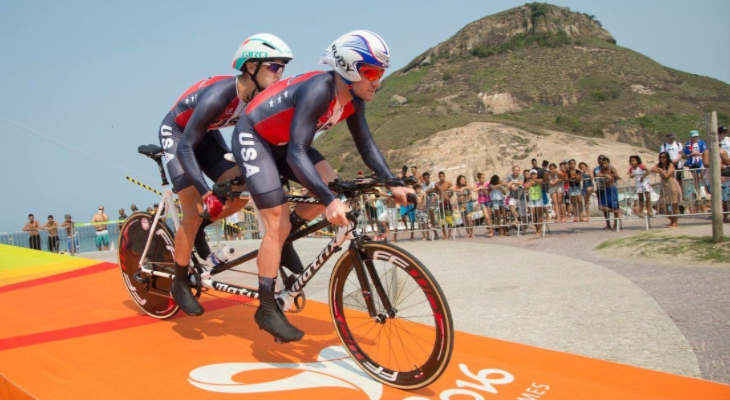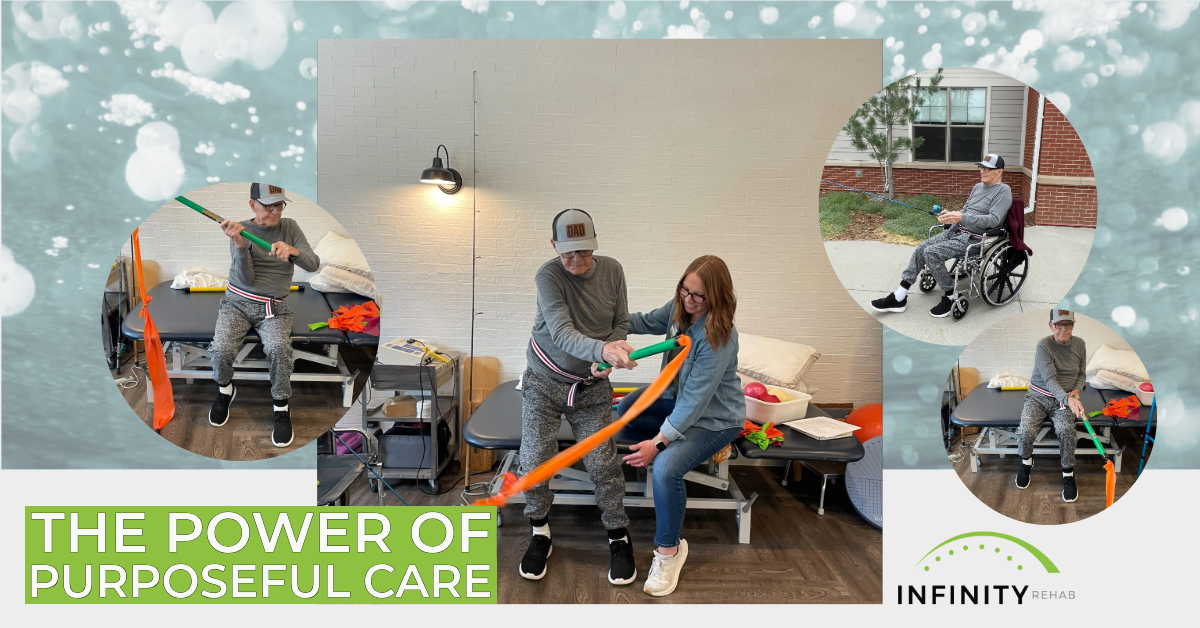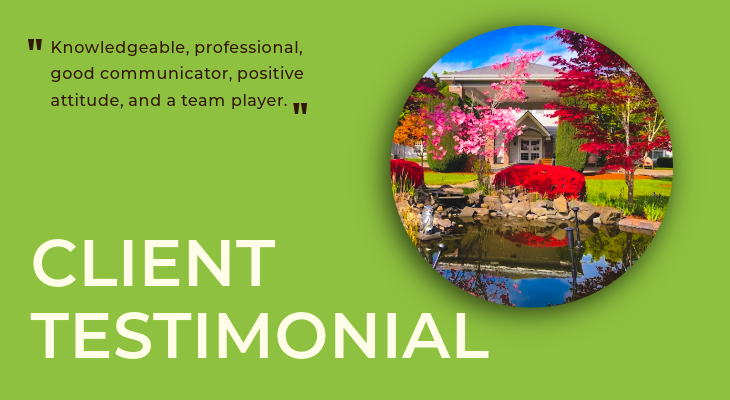Vision disability proves to be worthy challenge
Imagine only having 15 percent of your vision. Now imagine swimming, biking, and running with that limited vision. Infinity Rehab physical therapist Aaron Scheidies did just that. He did not perform in these sports as a limitation due to his impaired vision; rather, he accepted it as a worthy challenge and a way to relieve stress and attain normalcy in his life.
Aaron has been a physical therapist at the Shoreline Health and Rehabilitation Center in Shoreline, Washington for two years. He began competing in endurance sports in high school after he was diagnosed with juvenile macular degeneration. Beginning with swimming, he progressed to competing in triathlons by his senior year of high school. This led to competing in the World Championships in 2002. He continued to participate in triathlons for 10 years.
Next stop: the Paralympic Games
When triathlon was accepted as a sport in the Paralympic Games, Aaron set his sights on competing in the 2016 Rio Paralympic Games. His goal was to win the first gold medal for the United States. He hit a bump in his journey, though, when the sport for the blind/visually-impaired class was unexpectedly removed from the games by the International Triathlon Union.
Aaron’s competitive drive and relentless pursuit kept him motivated as he sought to find an alternative sport to compete in for the games. He worked hard and made the US Para-Cycling team, despite it being extremely competitive among athletes who have trained for several years specifically in that sport. Although he did not medal at the 2016 games in Rio, he was still driven to succeed. Aaron has been selected and is currently training for the 2020 Paralympic Games in Tokyo.
Inspiring others
Aaron has never seen his vision disability as an impairment. He has always compared himself to other “able-bodied athletes.” In addition to competing in the Paralympic Games, he serves on several boards, including the National Institute for Conflict in Sport and Team with a Vision Athletic Advisory Council. In 2012, he advocated for blind/visually-impaired athletes to eliminate the unfair rule that prohibited the use of blackout glasses.
Aaron prides himself in the positive impact his accomplishments have had on others. He has been an inspiration particularly to youth and young adults.
“I never began to compete to inspire, but over the years I have seen the impact of my resilience and determination,” Aaron said. “In overcoming adversity and obstacles, I can have a positive impact on others.”
He often shares these experiences with his Infinity Rehab patients. He sees the impact it makes on their motivation and their optimism.
Words to live by
Aaron has two philosophies he lives by. The first is “You don’t have to have a vision to be a visionary.” Aaron noted, “I encourage everyone to always attempt to see the world through the eyes of others before making any judgments or stereotypes.”
The second is “Smile through pain.” Aaron believes when we smile, we don’t hurt as much, even in difficult situations. Such words are definitely worth living by.
You can learn more about Aaron on his website: CDifferentWithAaron.com.







